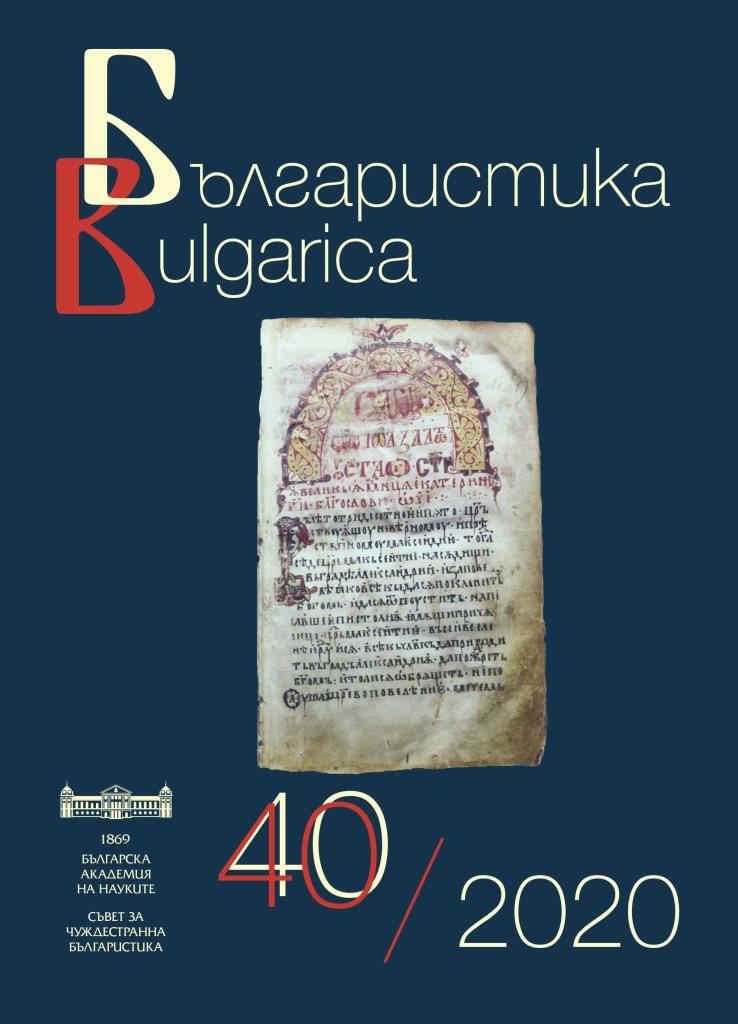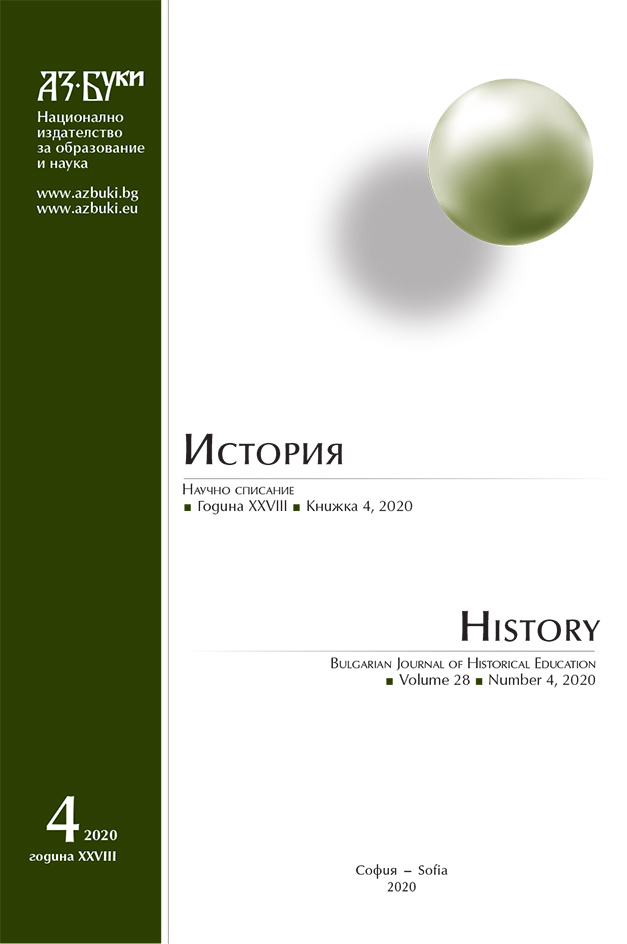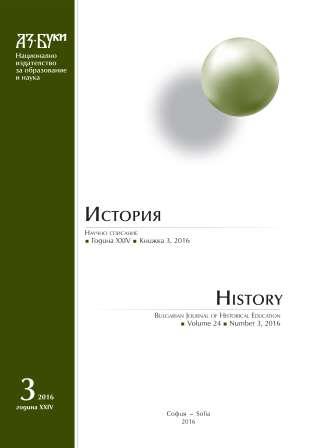
We kindly inform you that, as long as the subject affiliation of our 300.000+ articles is in progress, you might get unsufficient or no results on your third level or second level search. In this case, please broaden your search criteria.


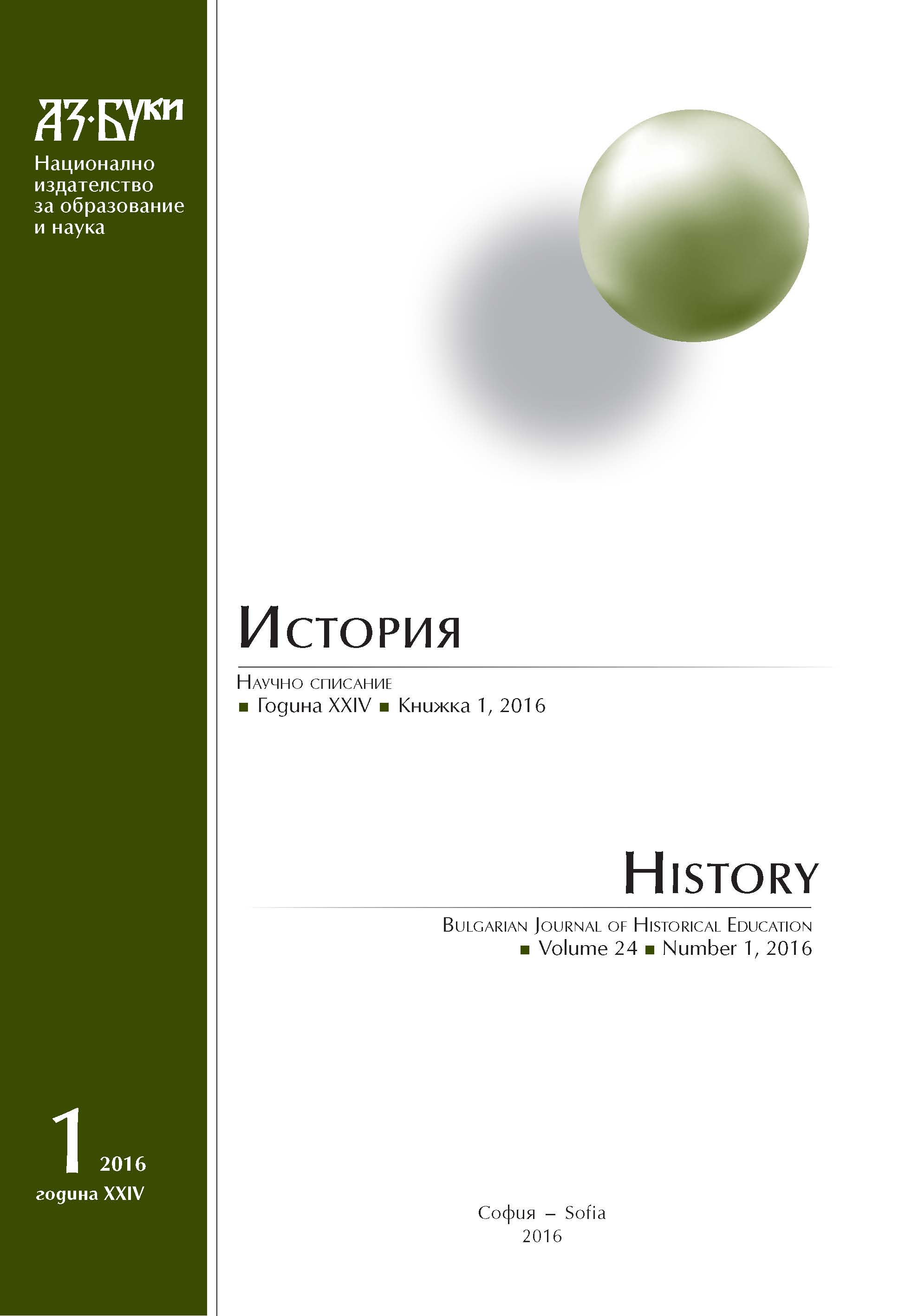

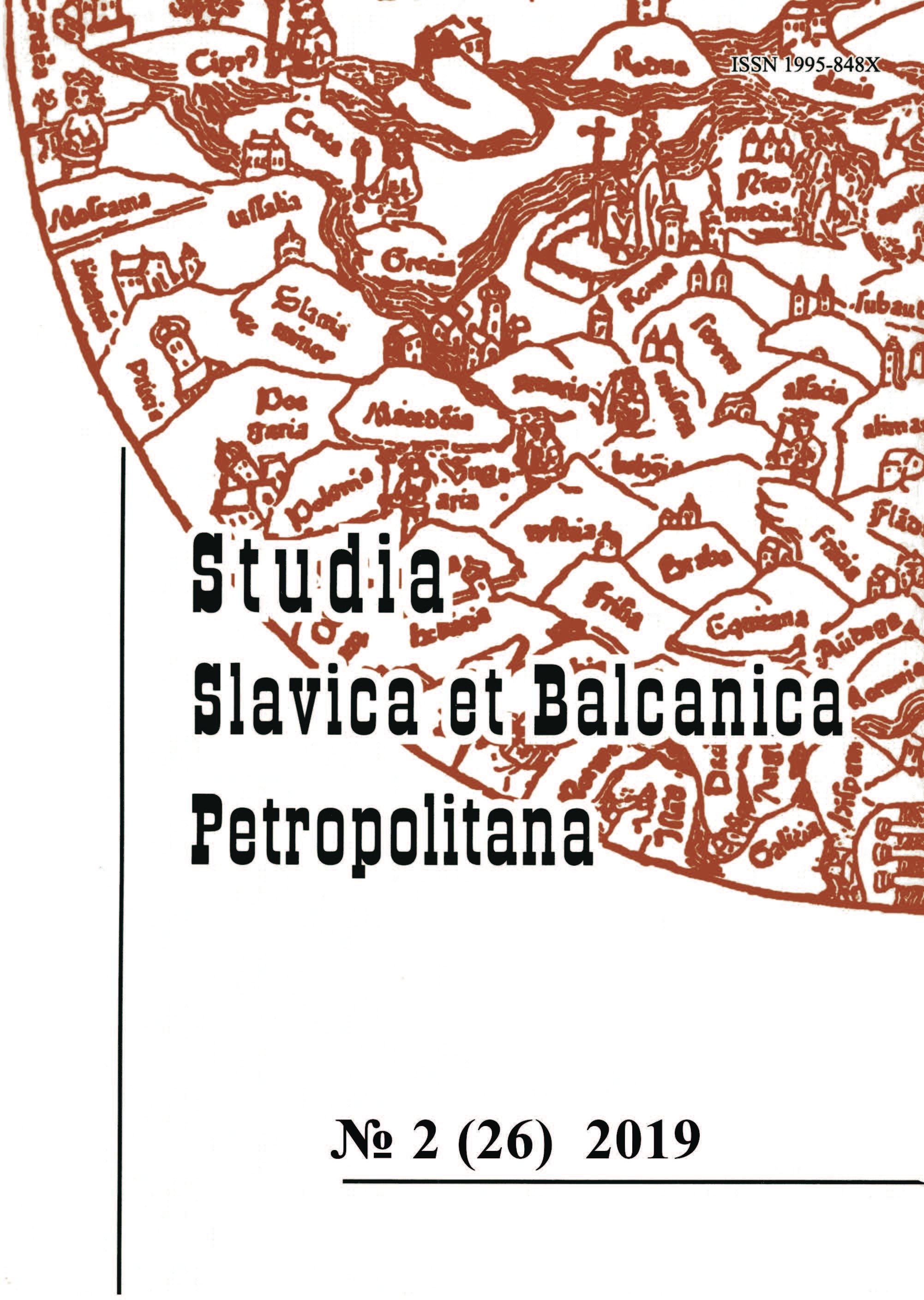
The article highlights issues related to the problems of studying the history of Eastern Europe, the definition of Slavic identity and the construction of national Slavic historical memory, which were discussed by domestic and foreign researchers in the framework of the First international St. Petersburg historical forum (October 29–November 3, 2019).
More...
The article discusses a few controversial ideas about the ‘essence’ of the Bulgarian nation. The foundation of the autonomous Bulgarian principality (1878) arouse the controversy between the ‘ethnic’ and the ‘civic’ perspective on the Bulgarian nation. This controversy is still actual in the Bulgarian public debates and influences the Bulgarian policy toward ethnic minorities and specific groups, such as Pomaks (Bulgarian-speaking Muslims) and Gagauz (Turkish-speaking Orthodox Christians) who did not ‘meet the standard’ for the ‘real’ Bulgarians.
More...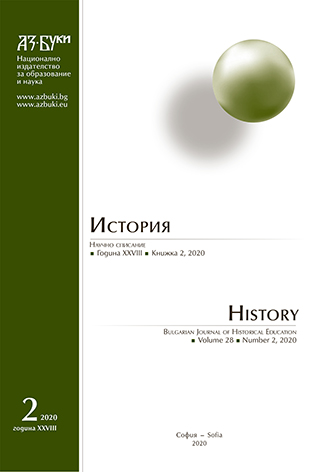

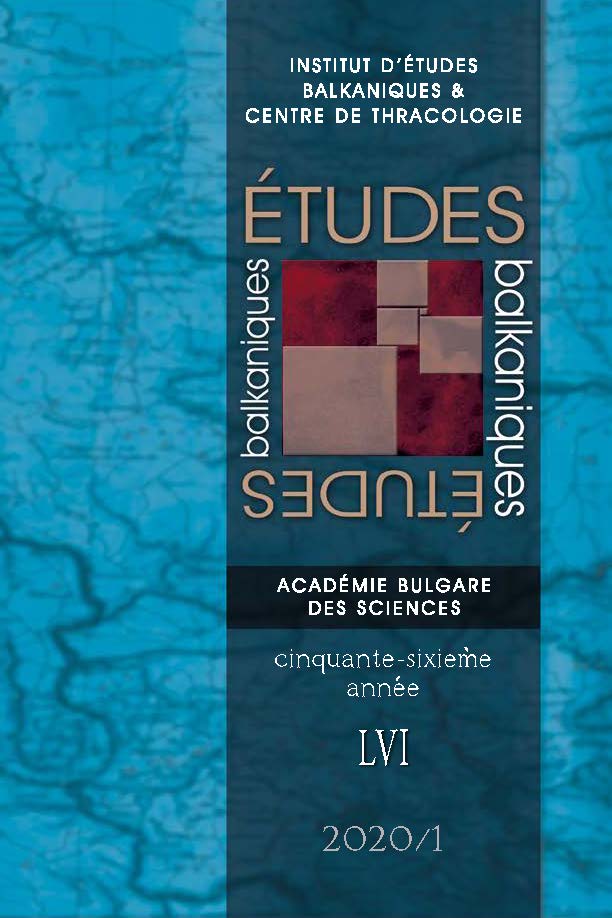
Abstract: The purpose of this text is to present several exemples of the Bulgarian history that reveal the role of the Greek language in the transfer of knowledge concerning economic life and its importance for the modernization processes of the eighteenth and nineteenth centuries. I comment on the use of Greek as a vehicle for knowledge in the field of commerce and I retrace the penetration of double-entry bookkeeping and the knowledge in commercial epistolography and geography, closely linked to commercial activities. The analysis of the correspondence of Bulgarian merchants of the 19th century reveals the current use of this language in trade, even after the cooling of relations between Bulgarians and Greeks during the second half of the 19th century due to the incompatibility of their national programs.
More...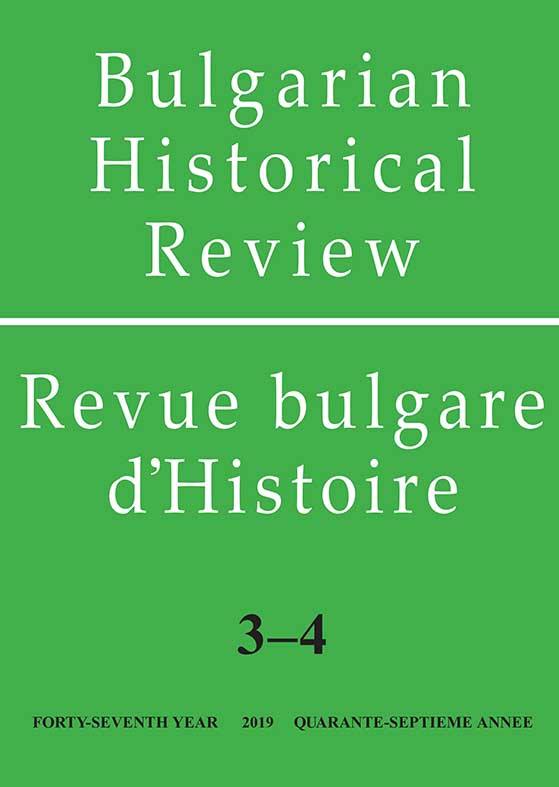
Dang Huy Tru (At Dau 1825 – Giap Tuat 1874) is not only a writer, poet, economist, and politician but also one of the first thinkers of “germination of civilization in Vietnam”. His ideas in many fields are quite rich and distinctive, and self-reliance and autonomy are among the core thoughts. Due to some subjective and objective conditions, such ideas have not become a reality in Viet Nam. However, if the limitations of historical conditions are filtered out, his ideas may be useful historical lessons for the current reform of the country.
More...
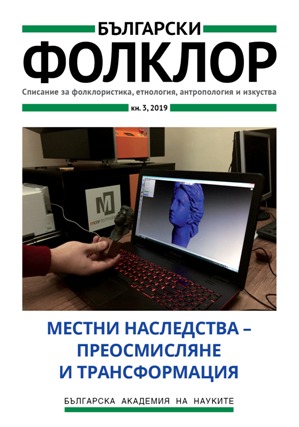
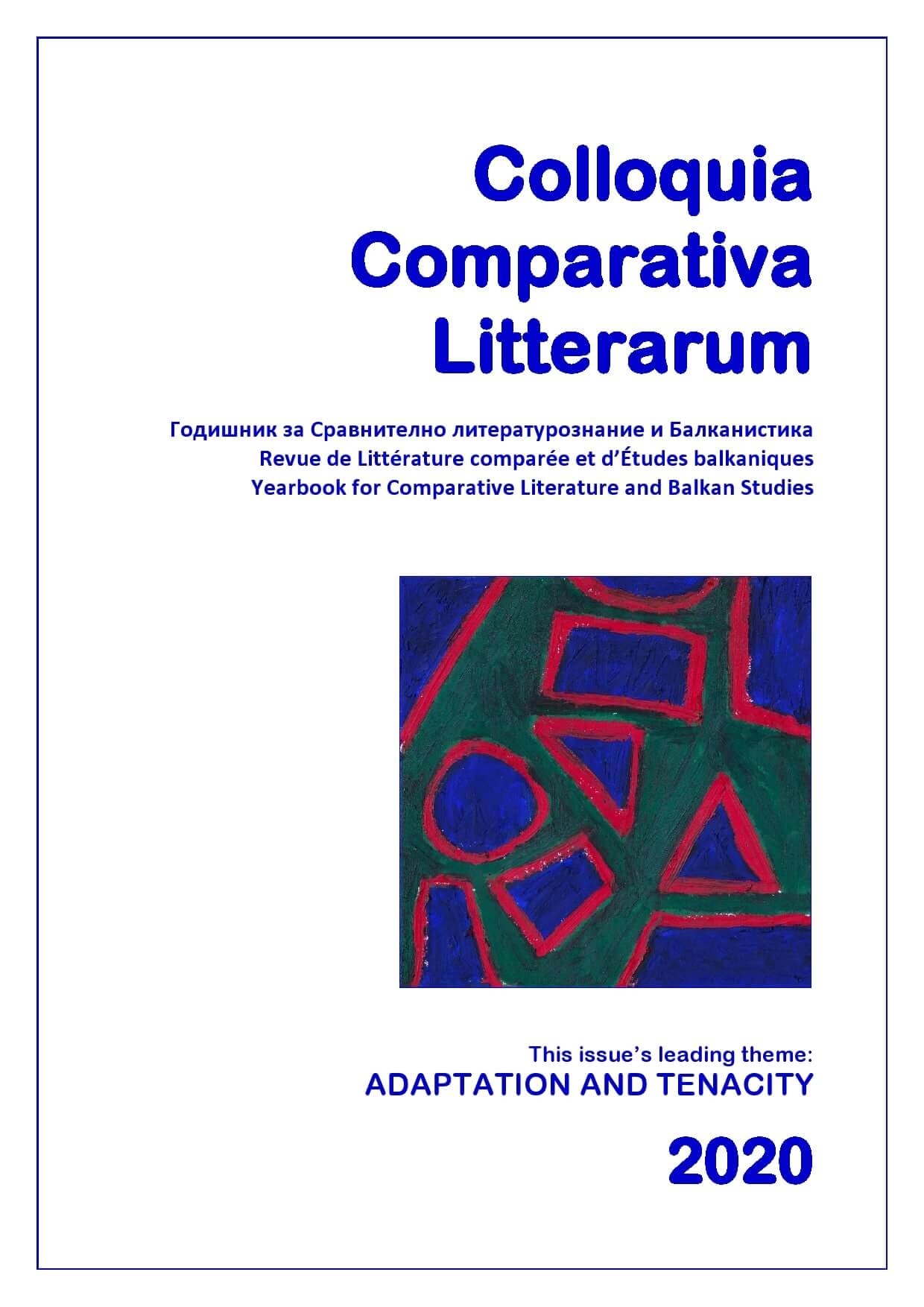
Book review: Francis Claudon. A l’école de Fauriel. Mélanges de littérature comparée. Editions universitaires européennes, 2018.
More...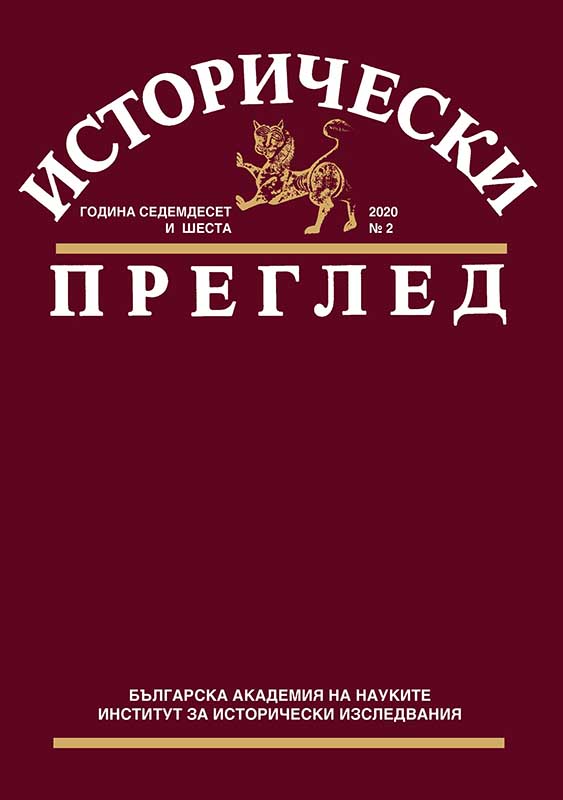
This study tries to delineate the socio-religious profile of Sofia slaveholders in mid-16th – mid-18th centuries mainly on the basis of relevant documents found in the local Sharia court’s registers dating from the same period. The analysis of a sample of 211 slave-owners reveals, first of all, that slaveholding in Ottoman Sofia was relatively widespread, comprising not only the provincial askeri elites but also the representatives of the lower strata of the askeri group, as well as ordinary citizens – traders and craftsmen, including (although, on a very modest scale) non-Muslims. Secondly, the examination of the documents in the sample showed a slight preponderance of cases, in which slave owners and ex-owners proved themselves supportive and helpful in one way or another to their slaves and ex-slaves. In this context the symbolic value of the slaveholding as an emblem of status and piety has been discussed, especially in connection with the phenomenon of some relatively poor and/or newly-Islamized people joining the ranks of slaveholders.
More...
The article examines the stages through which the flour-milling industry passed between the late 19th century and the first decade of the 20th century. Several factors contributed to the upward trend in the milling – the increase in cereal yields, the construction of a railway network and the establishment of new banks. The article details are considered laws encouragement of the Bulgarian industry (1894, 1905) and their application in the milling. It is proved that they contributed to the introduction of new technologies, accelerated the industrialization of the country and expanded the marketability of the economy.
More...
The article is dedicated to an episode of the cultural relations between Bulgaria and Poland immediately after the First World War. This was the time when their political and ruling elites realized that the two Slavic states would not receive the diplomatic support of the great powers and their neighbors to realize their national ideals. That was why they united around the concept of informal - scientific, personal and collective – contacts as a way to get to know each other and draw closer. This idea was carried out through the exchange of two delegations. On September 5, 1923, a Bulgarian cultural and educational group left Sofia for Poland. Among its members was Dr. Boris Vazov – chairman of „Slavyanska Beseda“, a prestigious journalist and public figure who was committed to sending daily articles covering the trip. In them he dwells on important events in Polish history, life, culture, economy and psychology of the Polish people, shares impressions of the patriotic feelings of Poles and their respect for the heroes who played an important role in national preservation.
More...